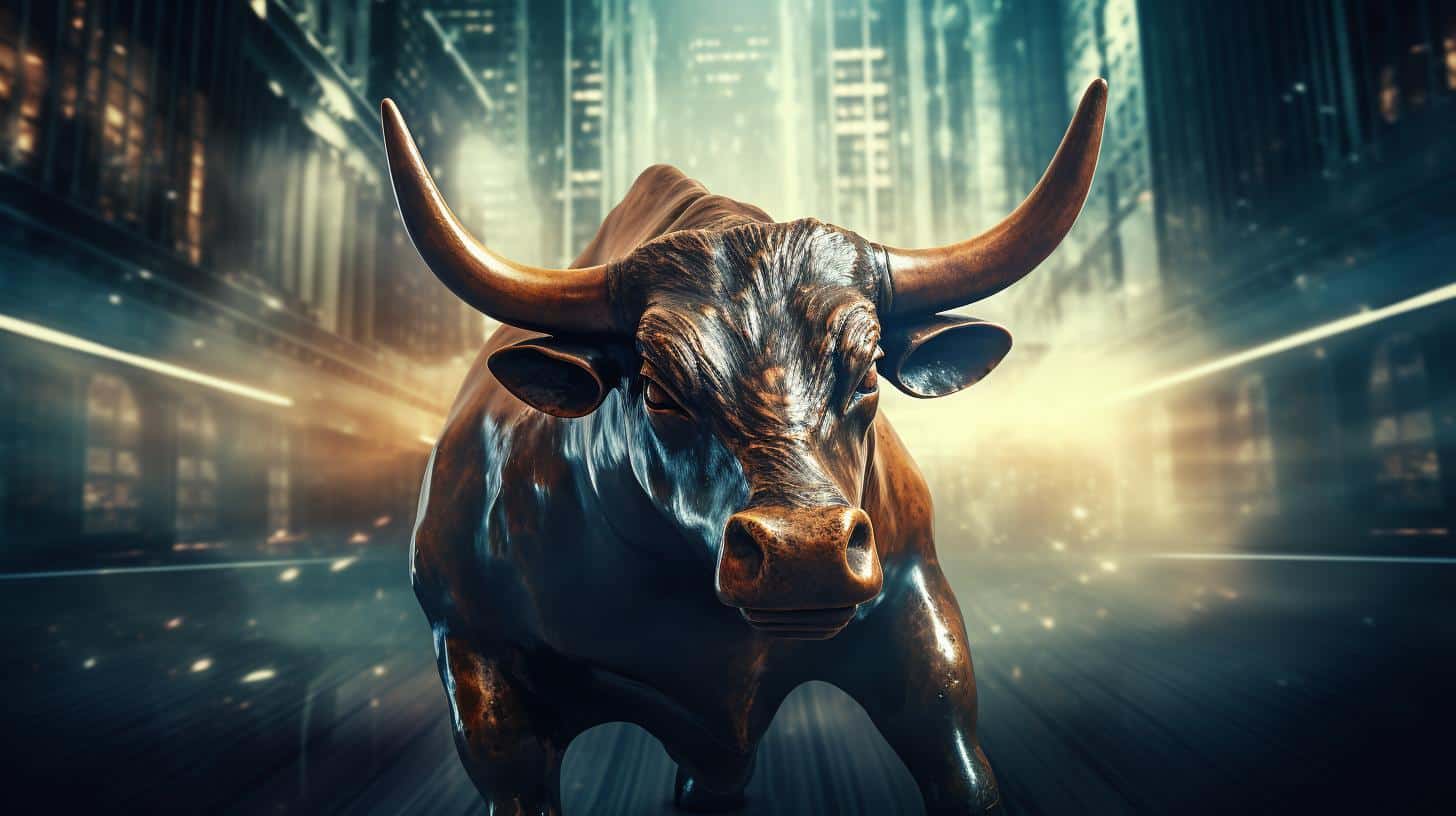Nvidia Investors Face Uncertainty as Stock Soars on AI Optimism
Nvidia Corp.’s remarkable ascent in the stock market has captured the attention of investors and propelled the S&P 500 Index to new heights. However, as the stock continues to surge, it begs the question: are investors paying for a future growth that may never materialize?
“The bubble exists because the underlying idea is real,” said Cole Wilcox, CEO and portfolio manager at Longboard Asset Management. This sentiment echoes the cautionary tale of another investor favorite, Tesla Inc., which experienced its own mania in 2017 as investors bet on the rise of electric vehicles.
Tesla’s stock skyrocketed, surpassing established automakers like General Motors and Ford in market capitalization. Some even touted it as “the next Apple Inc.” Yet, Tesla’s shares have since plummeted more than 50% from their 2021 peak, leaving other electric vehicle stocks in a similar state of decline.
Adam Sarhan, founder and CEO of 50 Park Investments, warns that when investors become infatuated with the idea of a technological breakthrough, logic often takes a back seat. “And when emotion takes over, sky is the limit,” he remarked.
While there are key differences between Nvidia and Tesla, there are also striking parallels. Nvidia’s rise from a niche chipmaker to a global powerhouse is predicated on the belief that its impressive sales growth is sustainable. Similarly, Tesla’s valuation surge in 2020 was based on the assumption that electric vehicles would be widely and rapidly adopted, with Tesla leading the charge.
However, reality has intervened, as demand for electric vehicles has slowed and the pace of adoption has lagged. Consequently, Tesla’s shares have fallen 31% from their recent high, making it one of the biggest decliners in the Nasdaq 100 Index this year.
Nvidia, on the other hand, is still in the early stages of the hype cycle, with no signs of a slowdown. The company’s strong performance over the past year, driven by robust demand for its chips used in AI applications, has catapulted its stock to the top of the S&P 500 Index once again, boasting a 66% gain in 2024. With a market value exceeding $2 trillion, Nvidia trails only Apple Inc. and Microsoft Corp. among U.S. companies.
While the excitement surrounding AI’s potential parallels the dot-com bubble era, Nvidia stands apart with its substantial profits and ability to consistently surpass expectations. The company’s net income surged over 500% to nearly $30 billion last year, with projections of doubling in the current year.
Nonetheless, Nvidia faces competition in the market for graphics chips optimized for AI models. Advanced Micro Devices has recently released its own line of accelerators, and even Nvidia’s customers, like Microsoft, are working to develop their chips.
“If you really believe in this AI frenzy, you can visualize a future 10 years from now where AI is embedded in a lot of places, and you need these massive systems running chips that can only be delivered by Nvidia,” explained Sameer Bhasin, principal at Value Point Capital. However, should there be a perception of a pause in purchasing, the stock could be impacted.
It is essential to recognize the potential in electric cars and AI, while also acknowledging the risks. Investors need to discern between the winners and losers in these rapidly evolving industries. As Cole Wilcox wisely noted, “The bubble exists because the underlying idea is real. But just because the general macro wave is real, it doesn’t mean that all of these ventures are going to turn out to be good investments.”
Analyst comment
Neutral news. The article raises concerns about the sustainability of Nvidia’s stock surge, drawing parallels to Tesla’s decline. While Nvidia’s performance and profits are strong, competition in the AI chip market and a potential pause in purchasing could impact the stock. Investors must distinguish between winners and losers in the evolving industries.













